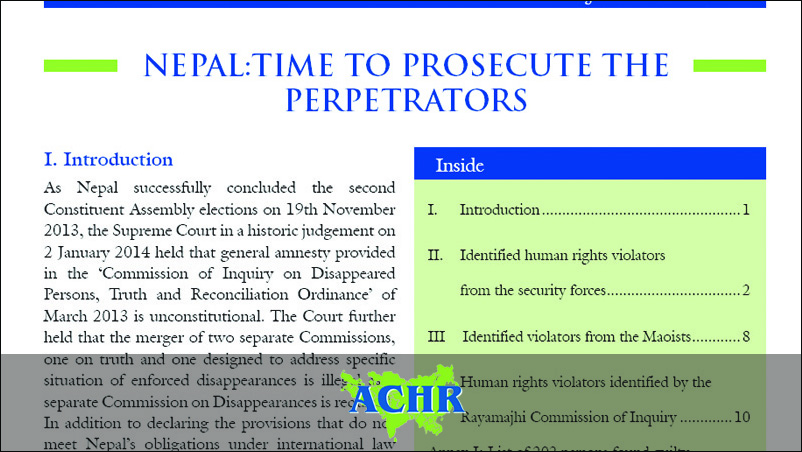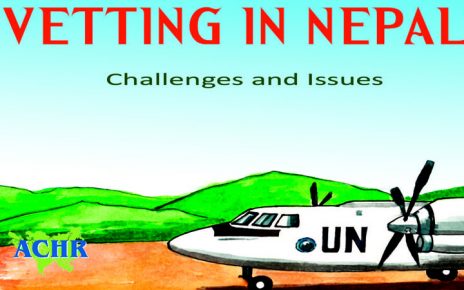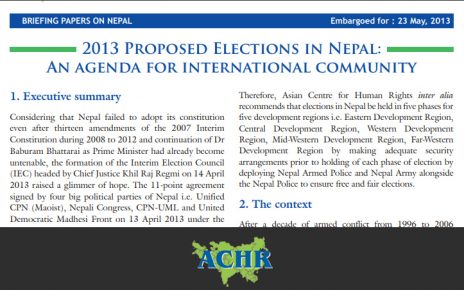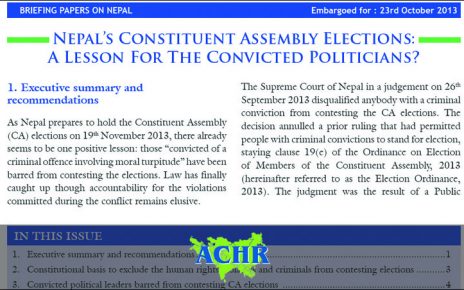As Nepal successfully concluded the second Constituent Assembly elections on 19th November 2013, the Supreme Court in a historic judgement on 2 January 2014 held that general amnesty provided in the ‘Commission of Inquiry on Disappeared Persons, Truth and Reconciliation Ordinance’ of March 2013 is unconstitutional. The Court further held that the merger of two separate Commissions, one on truth and one designed to address specific situation of enforced disappearances is illegal as a separate Commission on Disappearances is required. In addition to declaring the provisions that do not meet Nepal’s obligations under international law as null and void, the Court specifically instructed to legislate for the criminalisation of human rights violations not codified in Nepal, reparations to victims and their families, witness and victim protection programme and ensure impartiality of the Truth and Reconciliation Commission.
According to the Special Task Force of the government of Nepal, at least 17,265 persons were killed and 1,302 were disappeared during the conflict.1 However, the perpetrators of these violations have not yet been brought to justice. Bringing perpetrators to justice in post conflict situation is a cumbersome process because of the destruction of evidence and absolute lack of political will in cases where evidence does exist. The fact that the Office of the High Commissioner for Human Rights (OHCHR) in its 235 page report, “The Nepal Conflict Report”2, did not reveal the identity of a single perpetrator of human rights violations indicates the scale of the problems. At the same time, the Rayamajhi Commission established by the Government of Nepal recommended action against 202 persons for violations of human rights against the pro-democracy activists during the People’s Movement of April 2006.
As the Constituent Assembly is all set to start drafting of the Constitution, the lawmakers ought to bear in mind that Nepal’s new constitution must not fall below its obligations under international human rights law. Further, the government of Nepal must start prosecution of the perpetrators of human rights violations in earnest.




